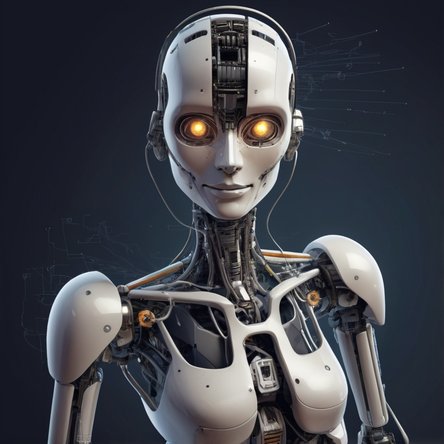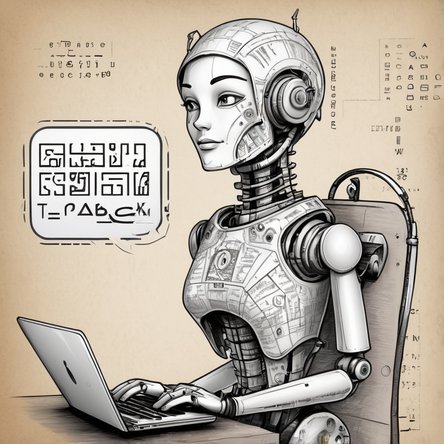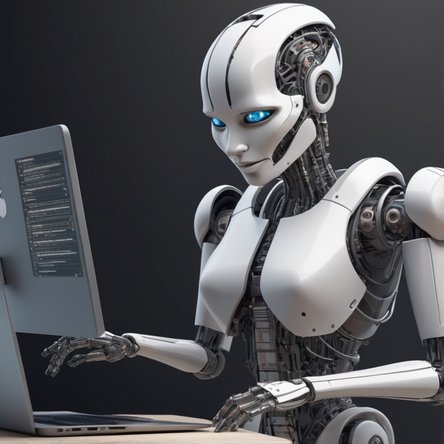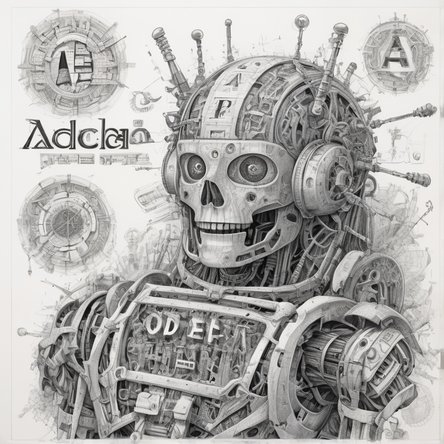Understanding CAPTCHA: What It Is and How to Pronounce It
The digital landscape is rife with challenges, one of which is distinguishing human users from automated bots. This is where CAPTCHA, an acronym for "Completely Automated Public Turing test to tell Computers and Humans Apart," comes into play. This technology serves as a gatekeeper, ensuring that interactions on the internet are genuine and not the result of automated scripts. But how exactly do you pronounce CAPTCHA, and what are its nuances? Let’s delve into the depths of CAPTCHA, exploring its pronunciation, purpose, and evolution.
The Correct Pronunciation of CAPTCHA
CAPTCHA is pronounced as "kap-chuh." This pronunciation breaks down into two syllables: "kap" and "chuh." The first part, "kap," rhymes with "cap," and the second part, "chuh," sounds like the "cha" in "cha-cha." This phonetic breakdown makes it straightforward for anyone to articulate the term correctly.
The Origins and Purpose of CAPTCHA
CAPTCHA was first introduced in the early 2000s by researchers at Carnegie Mellon University. The primary goal was to create a mechanism that could distinguish human users from automated bots. At that time, bots were increasingly being used to spam websites, create fake accounts, and manipulate online polls. CAPTCHA served as a barrier against these malicious activities by presenting challenges that were easy for humans but difficult for machines to solve.
How CAPTCHA Works
CAPTCHA typically presents users with a challenge that involves recognizing distorted text, identifying images, or solving simple puzzles. The underlying principle is that humans possess superior cognitive and perceptual abilities compared to machines, allowing them to easily complete these tasks.
For instance, a common type of CAPTCHA involves displaying a series of distorted letters and numbers that users must identify and enter into a text box. While this task is relatively simple for humans, the distortions can significantly hinder automated scripts from accurately recognizing the characters.
The Evolution of CAPTCHA
Over the years, CAPTCHA has evolved to counteract advancements in machine learning and artificial intelligence. Initially, text-based CAPTCHAs were highly effective, but as optical character recognition (OCR) technology improved, these became less reliable.
This evolution led to the development of more sophisticated CAPTCHAs, such as image-based challenges where users must select images that match a certain criterion (e.g., selecting all images containing traffic lights). These image-based CAPTCHAs leverage human visual recognition capabilities, which are still superior to those of machines.
reCAPTCHA: The Next Generation
Google’s reCAPTCHA represents a significant advancement in CAPTCHA technology. Introduced in 2009, reCAPTCHA initially followed the text-based model but later incorporated image recognition tasks. The latest versions of reCAPTCHA have moved towards more seamless and user-friendly experiences, such as the "I'm not a robot" checkbox and invisible CAPTCHAs that analyze user behavior to determine their humanity without explicit challenges.
The Importance of CAPTCHA in Cybersecurity
CAPTCHA plays a crucial role in cybersecurity by protecting websites from various forms of abuse. Automated bots can cause significant harm, from spamming forums to executing brute force attacks on login pages. By implementing CAPTCHA, website administrators can mitigate these risks and ensure that their sites are accessible only to legitimate users.
Challenges and Criticisms
Despite its effectiveness, CAPTCHA is not without its challenges and criticisms. One of the primary issues is accessibility. Some CAPTCHAs can be difficult for people with visual impairments or cognitive disabilities to complete. Efforts have been made to address these concerns, such as offering audio CAPTCHAs or alternative verification methods, but accessibility remains a critical area for improvement.
Moreover, as machine learning algorithms continue to advance, the arms race between CAPTCHA developers and attackers persists. CAPTCHA solutions must constantly evolve to stay ahead of increasingly sophisticated bots.
The Future of CAPTCHA
Looking ahead, the future of CAPTCHA likely involves a continued emphasis on user experience and accessibility. Emerging technologies, such as biometrics and behavioral analysis, offer promising alternatives to traditional CAPTCHA challenges. For example, behavioral biometrics can analyze patterns in how users interact with their devices, such as typing rhythm and mouse movements, to determine whether they are human.
Additionally, artificial intelligence can be leveraged to create more dynamic and adaptive CAPTCHA challenges that respond to the capabilities of individual users. These innovations aim to strike a balance between security and usability, ensuring that CAPTCHAs remain an effective tool in the fight against online abuse.
Conclusion
CAPTCHA, pronounced "kap-chuh," has become an integral part of internet security, helping to distinguish human users from automated bots. From its origins as a text-based challenge to the sophisticated reCAPTCHA systems of today, CAPTCHA technology continues to evolve in response to advancements in machine learning and AI. While challenges remain, particularly in terms of accessibility and the ongoing battle against increasingly sophisticated bots, the future of CAPTCHA holds promise for more user-friendly and secure solutions. Understanding how to pronounce and utilize CAPTCHA is just one small part of appreciating its broader impact on cybersecurity and the digital world.
The digital landscape is rife with challenges, one of which is distinguishing human users from automated bots. This is where CAPTCHA, an acronym for "Completely Automated Public Turing test to tell Computers and Humans Apart," comes into play. This technology serves as a gatekeeper, ensuring that interactions on the internet are genuine and not the result of automated scripts. But how exactly do you pronounce CAPTCHA, and what are its nuances? Let’s delve into the depths of CAPTCHA, exploring its pronunciation, purpose, and evolution.
The Correct Pronunciation of CAPTCHA
CAPTCHA is pronounced as "kap-chuh." This pronunciation breaks down into two syllables: "kap" and "chuh." The first part, "kap," rhymes with "cap," and the second part, "chuh," sounds like the "cha" in "cha-cha." This phonetic breakdown makes it straightforward for anyone to articulate the term correctly.
The Origins and Purpose of CAPTCHA
CAPTCHA was first introduced in the early 2000s by researchers at Carnegie Mellon University. The primary goal was to create a mechanism that could distinguish human users from automated bots. At that time, bots were increasingly being used to spam websites, create fake accounts, and manipulate online polls. CAPTCHA served as a barrier against these malicious activities by presenting challenges that were easy for humans but difficult for machines to solve.
How CAPTCHA Works
CAPTCHA typically presents users with a challenge that involves recognizing distorted text, identifying images, or solving simple puzzles. The underlying principle is that humans possess superior cognitive and perceptual abilities compared to machines, allowing them to easily complete these tasks.
For instance, a common type of CAPTCHA involves displaying a series of distorted letters and numbers that users must identify and enter into a text box. While this task is relatively simple for humans, the distortions can significantly hinder automated scripts from accurately recognizing the characters.
The Evolution of CAPTCHA
Over the years, CAPTCHA has evolved to counteract advancements in machine learning and artificial intelligence. Initially, text-based CAPTCHAs were highly effective, but as optical character recognition (OCR) technology improved, these became less reliable.
This evolution led to the development of more sophisticated CAPTCHAs, such as image-based challenges where users must select images that match a certain criterion (e.g., selecting all images containing traffic lights). These image-based CAPTCHAs leverage human visual recognition capabilities, which are still superior to those of machines.
reCAPTCHA: The Next Generation
Google’s reCAPTCHA represents a significant advancement in CAPTCHA technology. Introduced in 2009, reCAPTCHA initially followed the text-based model but later incorporated image recognition tasks. The latest versions of reCAPTCHA have moved towards more seamless and user-friendly experiences, such as the "I'm not a robot" checkbox and invisible CAPTCHAs that analyze user behavior to determine their humanity without explicit challenges.
The Importance of CAPTCHA in Cybersecurity
CAPTCHA plays a crucial role in cybersecurity by protecting websites from various forms of abuse. Automated bots can cause significant harm, from spamming forums to executing brute force attacks on login pages. By implementing CAPTCHA, website administrators can mitigate these risks and ensure that their sites are accessible only to legitimate users.
Challenges and Criticisms
Despite its effectiveness, CAPTCHA is not without its challenges and criticisms. One of the primary issues is accessibility. Some CAPTCHAs can be difficult for people with visual impairments or cognitive disabilities to complete. Efforts have been made to address these concerns, such as offering audio CAPTCHAs or alternative verification methods, but accessibility remains a critical area for improvement.
Moreover, as machine learning algorithms continue to advance, the arms race between CAPTCHA developers and attackers persists. CAPTCHA solutions must constantly evolve to stay ahead of increasingly sophisticated bots.
The Future of CAPTCHA
Looking ahead, the future of CAPTCHA likely involves a continued emphasis on user experience and accessibility. Emerging technologies, such as biometrics and behavioral analysis, offer promising alternatives to traditional CAPTCHA challenges. For example, behavioral biometrics can analyze patterns in how users interact with their devices, such as typing rhythm and mouse movements, to determine whether they are human.
Additionally, artificial intelligence can be leveraged to create more dynamic and adaptive CAPTCHA challenges that respond to the capabilities of individual users. These innovations aim to strike a balance between security and usability, ensuring that CAPTCHAs remain an effective tool in the fight against online abuse.
Conclusion
CAPTCHA, pronounced "kap-chuh," has become an integral part of internet security, helping to distinguish human users from automated bots. From its origins as a text-based challenge to the sophisticated reCAPTCHA systems of today, CAPTCHA technology continues to evolve in response to advancements in machine learning and AI. While challenges remain, particularly in terms of accessibility and the ongoing battle against increasingly sophisticated bots, the future of CAPTCHA holds promise for more user-friendly and secure solutions. Understanding how to pronounce and utilize CAPTCHA is just one small part of appreciating its broader impact on cybersecurity and the digital world.




